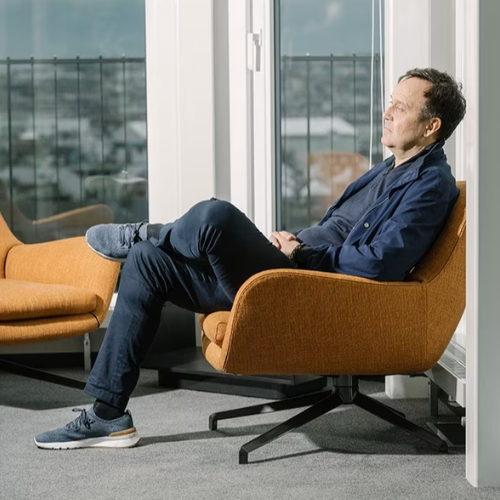Dutch oil trader Niels Troost is challenging the European Union’s decision to impose sanctions on him, arguing that the ruling was based on false information. Troost has taken his case to the EU’s General Court, claiming that the accusations against him were fueled by a former business associate who had personal motives to harm his reputation. According to legal documents, this former partner spread misleading information, which led to the EU’s decision to blacklist him.
The European Union had sanctioned Troost in December 2023, making him the only European individual penalized for selling Russian oil. The EU accused his companies of violating restrictions placed on Russian crude oil after the Ukraine conflict began. However, Troost insists that his firms had stopped dealing in Russian oil long before the sanctions were put in place. He also argues that a shipping company linked to the case had been sold years earlier and should not have been used as evidence against him.
Disinformation and a Business Dispute
The legal dispute centers on claims that a former business partner misrepresented facts to authorities. Court filings suggest that this person had once promised Troost access to special permissions that would allow continued oil trade with Russia. These claims turned out to be false, and Troost ended their partnership in May 2023 after realizing he had been misled.
Dutch Oil Trader Niels Troost Faces EU Sanctions Over Russia Ties
Following this fallout, the former partner allegedly launched a campaign to discredit Troost. Reports suggest that he spread false information to media outlets and officials, painting a misleading picture of Troost’s business activities. Troost’s lawyers argue that the EU acted on this incorrect information without properly verifying the facts.
To support their case, Troost’s legal team has pointed out that all Russian oil transactions by his companies had ended at least 15 months before the EU sanctions were imposed. Additionally, a ship-chartering company cited in the EU’s evidence had actually been sold six years earlier. Despite these facts, the EU included it in their decision, further fueling Troost’s claim that the ruling was based on outdated or incorrect details.
How the EU Built Its Case
The European Union based its sanctions on a combination of media reports, public records, and intelligence gathered from different sources. The official evidence file includes articles from multiple publications, screenshots of company websites, and corporate intelligence reports.
One of the key accusations against Troost was that his firm, headquartered in Geneva, and its Dubai-based subsidiary had continued selling Russian oil above the EU-imposed price limit of $60 per barrel. While it is confirmed that the Dubai subsidiary did sell Russian oil after this cap was introduced, Troost argues that the firm was independent and not subject to EU regulations. He further claims that any such dealings stopped in June 2023 when it became clear that his former partner had no real connections to U.S. authorities.
EU Targets Russia’s Frail Economy with New Aluminium and Gaming Sanctions
Disputed Ownership of Ship-Chartering Company
The EU also cited a ship-chartering company that was reportedly involved in transporting Russian crude oil above the price cap. According to official records, Troost had once been linked to this company, but his lawyers argue that he had sold it to a business associate in 2018. While the company continued working with his former businesses after the sale, they insist that this does not mean he was involved in its later activities.
Despite Troost’s objections, officials defending the sanctions argue that multiple government bodies had reached the conclusion that violations had occurred. They maintain that their decision was based on reliable sources and not on any personal disputes or misinformation.
Since the start of the conflict in Ukraine, the EU has sanctioned nearly 2,400 individuals and companies suspected of supporting Russia’s war efforts. Many have tried to challenge these sanctions in court, but most legal cases have upheld the EU’s decisions. Troost, sanctioned by the UK in February 2024 and later by Switzerland, is one of only nine EU citizens to be targeted under these measures. His legal battle now joins a growing list of similar cases where business figures have sought to overturn EU sanctions, arguing that they were imposed unfairly or without sufficient evidence.


